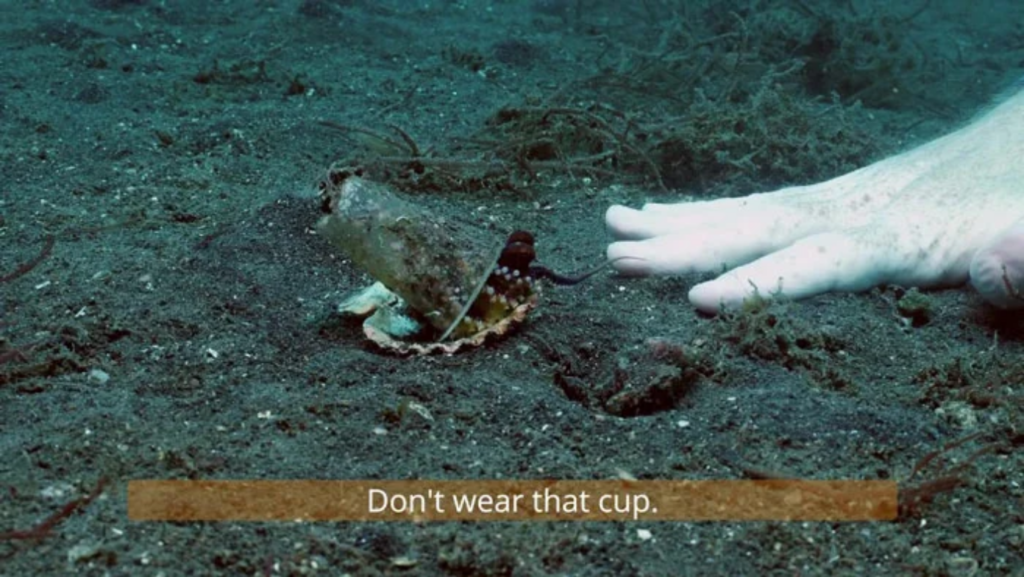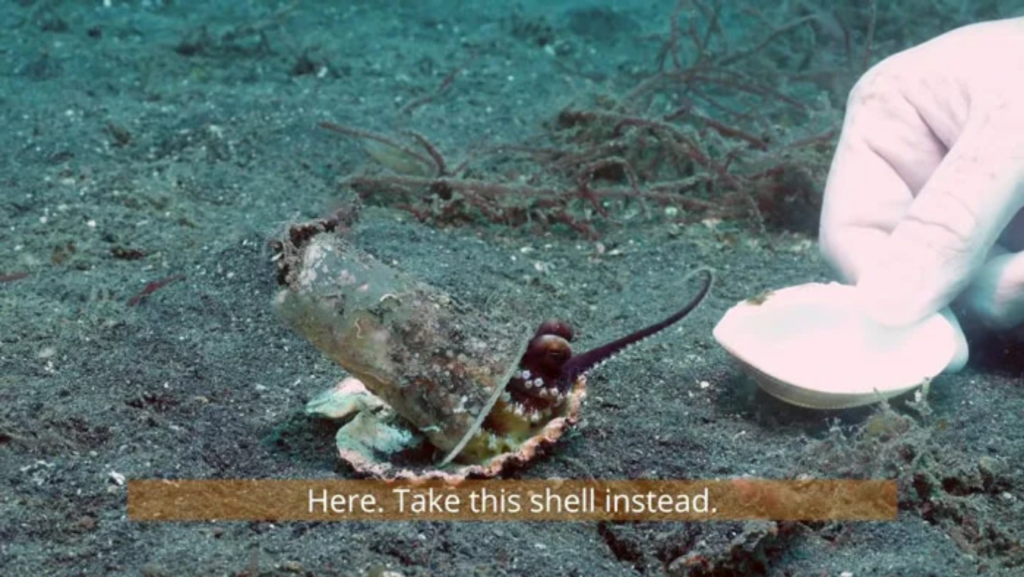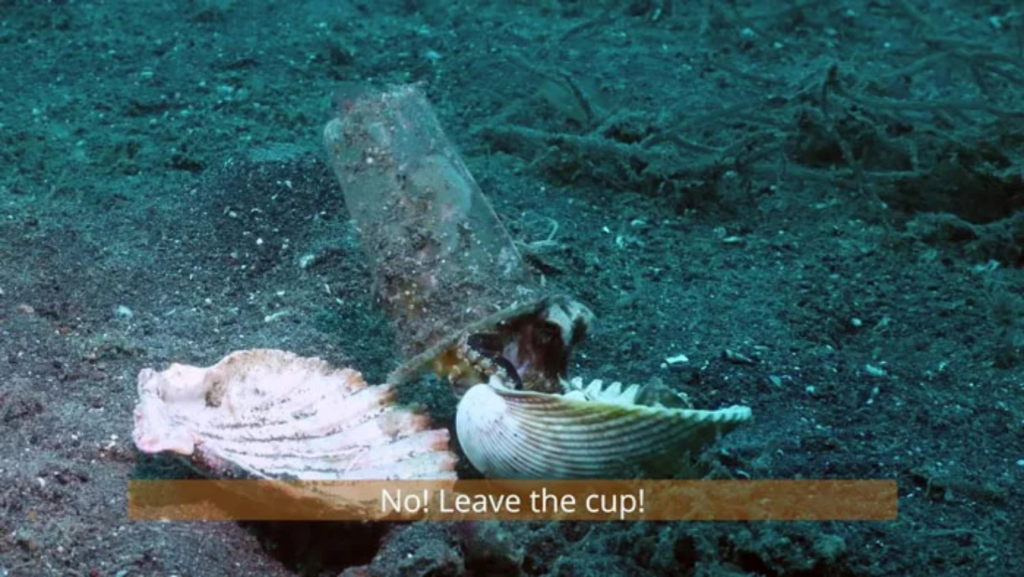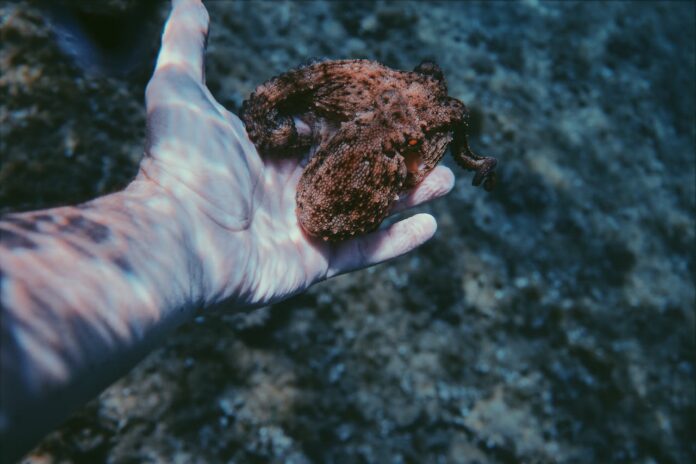Did you know that humans have already destroyed over half of the planet’s ecosystems? Conservationists estimate that more than 260,000 tons of plastic now pollute our oceans. And it’s not just plastic—some of this waste is highly toxic to marine life.
We often forget that countless creatures live in the ocean. Every bit of waste we throw away puts those lives in danger, leading to extinctions. And, yes, that’s on us.

This story shows the impact of our carelessness, though it comes with a silver lining. It’s a feel-good reminder that protecting ocean life is our responsibility, too.
A baby veined octopus had been using a plastic cup as its home. In Lembeh, Indonesia, a team of divers convinced it to trade that plastic cup for a real shell.
Pall Sigurdsson, an Icelandic engineer with a love for marine life, and his dive team found the little octopus clinging to a plastic cup.

“This was our third dive that day, and we were all starting to get a little tired,” Sigurdsson shared. “My dive buddy gave me a signal that he’d found an octopus and needed my help.”
The team was determined to find a safer home for the octopus, though it took so long they nearly ran out of air.
Sigurdsson explained that seeing octopuses making homes out of trash isn’t uncommon. “They’re clever animals and use what’s around them. But now, trash is a permanent part of their world.”
While clever, the octopus didn’t know the plastic cup offered no real protection. In the ocean’s competitive environment, the cup could’ve been a death sentence.
So, the divers offered it a few shell options to choose from.

Veined octopuses, also called coconut octopuses, usually find safety in coconut or clam shells, which work as mobile homes. But with fewer natural materials available, they’ll use whatever they can find—even plastic. These “see-through” homes leave them exposed to predators and put the entire food chain at risk, as plastic enters the diets of those predators too.
Sigurdsson recalled, “Some days, ocean currents bring in so much trash it’s hard to film sea creatures without capturing the waste, too. Once, I saw a family of anemone fish living beside a corroded battery. That was heartbreaking.”
In the end, the baby octopus happily settled into its new shell, even forgetting the other half of it!
Plastic remains one of the biggest threats to sea life. “Most of it sinks, so people only notice the trash that floats,” Sigurdsson said. “But that’s just the tip of the iceberg.”
Watch the heartwarming moment when the divers helped this little octopus find a safe home below.




